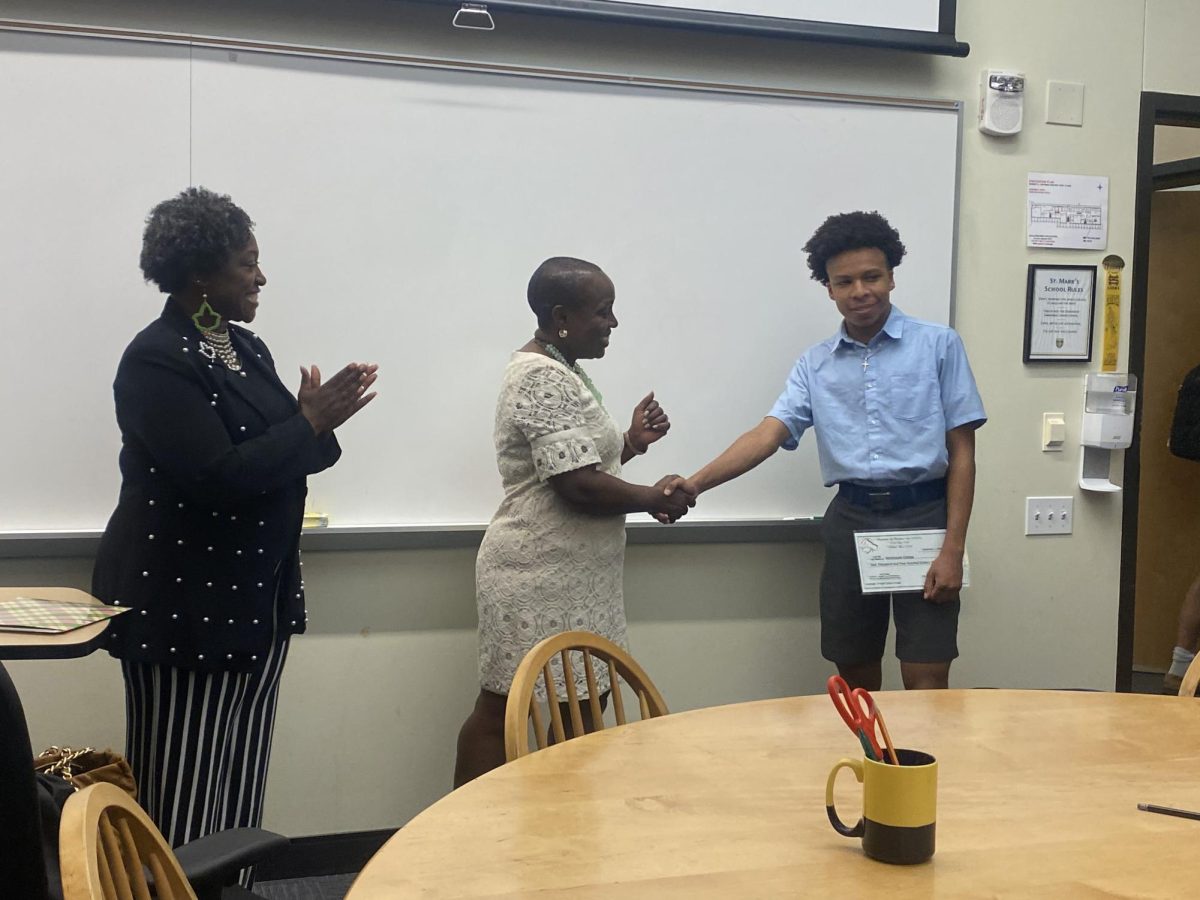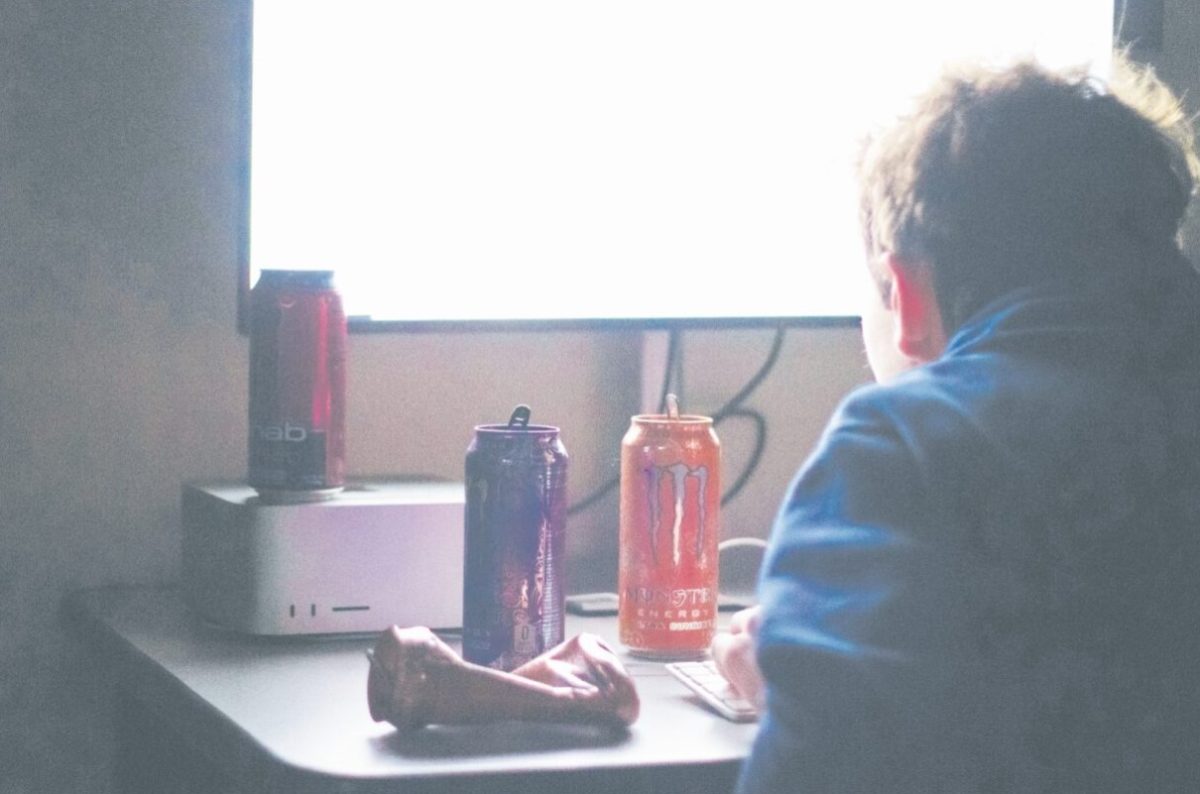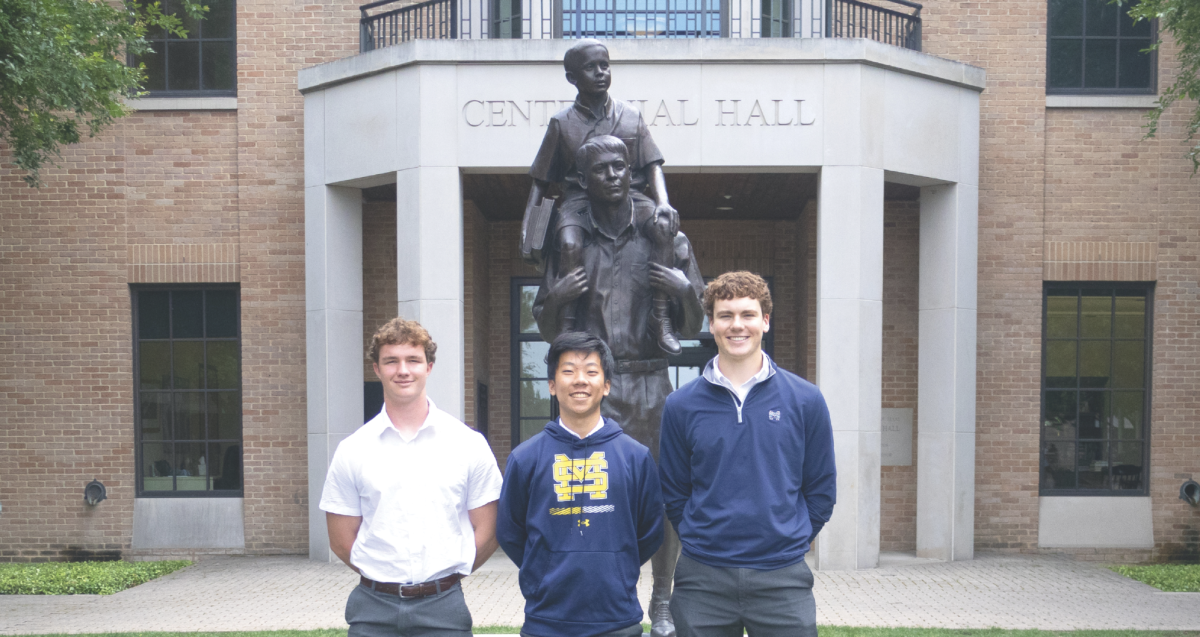The onset of the digital age has brought about sweeping changes to how industries function, employees work and individuals communicate.
Following this trend, parenting has significantly evolved over the last several decades, specifically as a result of the new ability to manage a child’s presence online.
Tracking apps such as Find My and Life360, parental controls and parents reading through their child’s social media posts and messages have opened a window into teenagers’ lives never before seen by parents.
These new capabilities have not only changed parenting, but also have the ability to alter the dynamics of a parent to child relationship and affect a child’s development and mental health.
Co-Director of Undergraduate Studies of Psychology at SMU Chrystyna Kouros, PhD, believes that communication is crucial between a parent and child to ensure a family is on the same page.
“Any time there is a rule, there should be a discussion to understand, ‘Why do we have this rule?’” Kouros said. “But, having conversations around rules doesn’t mean that, as a parent, you have to change the rules.”
Kouros believes that even though technology has changed and there are different ways to track children, the same rules on communication apply.
“You wouldn’t read your child’s diary, right?” Kouros said. “That could be an invasion of privacy. So you might have an understanding of whether you are allowed to monitor text messages or DMs (direct messages) and have some sort of agreement that makes sense for that particular child.”
At the same time, Upper School Counselor Dr. Mary Bonsu notes it can be difficult for parents to decide not to look deep into a child’s phone, given the vast array of content on the internet,
“I wouldn’t tell a parent not to go through their child’s phone,” Bonsu said, “but I would tell a parent to be aware of what all of that information is going to do for them. If you tend to be a parent who is a little bit more on the anxious side, having too much information could prompt you to act in ways with your child that communicates distrust, over-management or over-control, just high restrictions on freedom that every adolescent needs to experience.”
While intervening in trivial teen development online may cause problems, Bonsu thinks it is important to keep an eye out for larger problems.
“Some of the information you see coming in online, you’re going to have to sit on and not say anything,” Bonsu said.” But (as a parent) if I see red flags, a child communicating in ways that are harmful, disrespectful, aggressive or just inappropriate, then I’m going to intervene on that and have a conversation.”
Bonsu acknowledges that it can be difficult to find the right balance of restriction and freedom with technology that parents provide to their kids.
“In the online world, it is hard to establish norms right now because technology is moving faster than many parents can cope with,” Bonsu said. “And so, in terms of saying what’s normal teenage development online, the research is still cutting edge.”
But one aspect of parental involvement Bonsu finds useful is parental controls, allowing parents to restrict screen time, app access and disable certain features. Bonsu has found these restrictions work particularly well for kids in grades five through nine.
For these reasons, the school holds sessions for parents where they provide resources on how to stay up to date with the technology their children are using.
“The prefrontal cortex development before age 16 just looks different,” Bonsu said. “In terms of what the parental controls do, they act like a prefrontal cortex. They restrict your time, they force you to have time management, prioritization, limited distractions and that sort of thing.”
Kouros agrees.
“It’s appropriate to make sure that kids aren’t just on their phones from the minute they get home until the minute they go to bed,” Kouros said. “It’s not healthy for anyone, and adults are guilty of that as well. But I think if children are navigating how to use social media, I think some parental involvement is critical. I don’t find that to be in the same realm of over involvement or micromanaging as in other areas of a kid’s life.”
This micromanaging in parenting is often referred to as “helicopter parenting” or overparenting. A term that has grown in popularity over the past decade, helicopter parenting is unique because even though such parents are psychologically and behaviorally controlling, they act in warm and caring ways and truly care about their kids.
“You’re starting to do things for your child that developmentally they should be learning to do for themselves,” Kouros said.
When Kouros and her colleague decided to research the effects of this style of parenting, their results were consistent with other findings on the topic.
“When a college student perceives their parents as engaging in more of these helicopter parenting behaviors – doing things for them instead of coaching them, intervening and micromanaging their lives – that is related to worse mental health outcomes,” Kouros said. “In general, the literature tends to find that helicopter parenting has negative consequences on those emerging adult’s mental health, well being, academic motivation, academic performance, self esteem and just a host of other outcomes.”
Being a college professor, Kouros has seen real life examples of the effects of helicopter parenting.
“If someone wants an extension and they’re not feeling well, they’ll have a parent email you instead of them,” Kouros said. “That would be an example of doing something developmentally inappropriate because, as a 20-year old, you should be able to email your professor and ask for an extension.”
While over-involved parents disrupt their child’s growth, other parents who let their children have free reign, also inhibit development.
“That actually backfires,” Kouros said. “It’s not actually teaching your child to be independent or autonomous. As a parent, part of your job is to teach those skills and serve as an emotional coach.”
Kouros stresses the importance of autonomy in parenting, believing it to be crucial for successful adulthood and fulfillment.
“Autonomy starts from adolescence and has to be fostered and developed,” Kouros said. “That’s one of the reasons why they hypothesized why helicopter parenting can be detrimental –– because it’s thwarting emerging adults from attaining that level of autonomy.”
In order to foster a child’s autonomy, Kouros looks to a balance of control and independence.
“You want to find that happy medium where you’re still the parent, and you’re still disciplining and coaching the child,” Kouros said “But do it in a way where you explain the rules, there’s discussion and you take the child’s needs into account.”
Nathalie Reagins, a mother of two boys, including junior Alden Reagins, uses the app Life360 to ensure her children’s safety while still giving her sons enough freedom and autonomy to be himself.
She says she does not use the app to micromanage her kids; she only checks the app at night, when her boys are out of town for their soccer games or when Alden is approaching his curfew.
Nathalie Reagins, believes that even though tracking technology wasn’t a thing in her generation, using apps like Life360, an app that can track a person’s location, is justifiable because the world is more dangerous as well.
“Leaving a child completely alone with no supervision is like dropping him off at a public park and just leaving him and then coming back three hours later to pick him up,” Mrs. Reagins said. “If you’re a parent, you’ve watched movies and read stories about predators contacting children on social media.”
She considers Life360 an efficient tool, especially when there is a lack of communication between her and her son.
“In general is not really good at telling me if he’s going to a different place, so I might drop him off in one place, but I don’t really know where he is,” Nathalie Reagins said.
Similar to Mrs.Reagins, junior Luke Laczkowski parents use Life360 to keep track of his location, but they primarily make use of the app’s ability to monitor an individual’s driving speeds.
“Whenever I go above a certain speed,” Laczkowski said, “it notifies my parents and they can look at my speed while I’m driving. My mom tells me multiple times that I’m going too fast and I need to slow down or I will lose my car.”
Yet Laczkowski doesn’t think tracking his driving speed is a step too far – he is glad his parents always have an eye out for his safety.
And because he receives a reminder each time he speeds, Laczkowski feels as if he is only continuing to learn how to be a better driver.
“When I have more independence later on,” Laczkowski said, “I think having Life360 will have made me a better driver because I will be used to driving at the safe speeds my parents enforced.”
Moving forward, as technology continues to change, parents and their children will have to continue working toward a balance of restrictions and responsibilty in their everyday lives, continuing to adapt to the ever-changing digital age.






